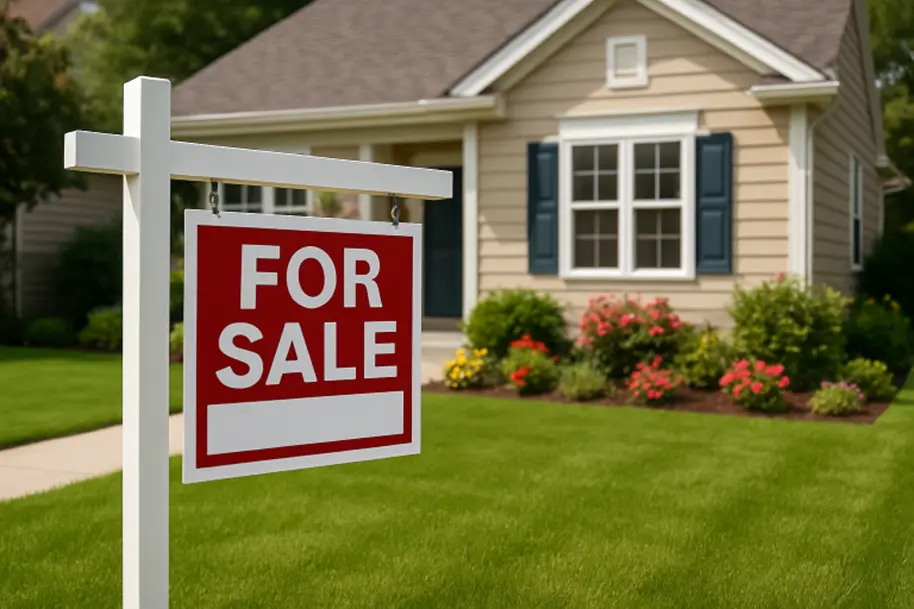Table of Contents
ToggleSelling your home is a significant milestone filled with both excitement and challenges. Whether you’re relocating, upgrading, or simply ready for a change, the process can seem daunting without the right guidance. With thorough planning and strategic actions, you can transform what feels overwhelming into a seamless and rewarding experience.
The home sale process involves more than simply listing your property; it’s about making smart decisions at every step to maximize value and minimize stress. By understanding the nuances of pricing, staging, marketing, negotiations, and closing, you can confidently navigate each stage. It’s crucial to tailor your approach to your unique situation, balancing your timeline, financial expectations, and market realities for the best possible outcome.
Today’s competitive real estate market requires not only preparation but also a willingness to adapt to changing circumstances. From initial preparations to finalizing the sale, every detail matters—sometimes more than sellers initially realize. A thoughtful and informed strategy can differentiate your property and attract serious buyers faster.
If you need to make a quick decision or want even more control over your home sale, options like the sell now approach provide flexibility, allowing you to act on your own terms. Check out https://www.valleyresidentialgroup.com/sell-my-house-fast-cheshire-ct/ for more on how this method works and whether it’s right for you.
Pricing Your Home Strategically
One of the most decisive factors in a successful home sale is pricing. Listing your home too high can deter potential buyers, while underpricing may result in leaving money on the table. To determine the optimal price, begin with a comparative market analysis—review the sale prices of similar homes in your area over the past few months. Enlisting a knowledgeable real estate agent can offer a valuable professional perspective, ensuring your price is competitive while still reflecting your property’s unique value. If you’re ready to sell now, transparent pricing that aligns with the current market can attract more showings and better offers, as highlighted by The New York Times.
Enhancing Curb Appeal
First impressions are crucial when selling your home. The exterior is the first thing buyers see, and their initial reaction can set the tone for the entire showing. Simple upgrades—such as a freshly mowed lawn, trimmed hedges, new mulch, a coat of paint on the front door, or seasonal flowers—can significantly increase your home’s attractiveness. According to AARP, enhancing curb appeal remains one of the easiest and most cost-effective ways to spark interest among buyers.
Staging the Interior
After attracting potential buyers from the outside, the home’s interior should leave a strong impression. Staging aims to help buyers picture themselves living there. Begin by decluttering and depersonalizing—eliminate family photos, unique collections, and surplus furniture to make spaces feel more open and welcoming. Using neutral colors and tasteful decorations can highlight your home’s features and encourage buyers to see its potential rather than your personal taste. Good staging not only improves photographs but can also result in quicker sales and higher offers, according to Forbes.
Investing in Professional Photography
With the majority of buyers beginning their search online, high-quality visuals are no longer optional—they’re a necessity. Professional photography captures your home in its best light, emphasizing key features and making the property stand out on listing sites. Bright, well-composed images boost your listing’s appeal, helping you reach and attract more qualified buyers. Virtual tours and video walkthroughs can enhance this visual experience, especially for remote or busy buyers.
Implementing Effective Marketing Strategies
Effective marketing boosts your home’s visibility to the ideal audience. Go beyond just listing on the MLS by utilizing digital marketing channels like social media ads, targeted email campaigns, and paid listings on real estate platforms. Hosting open houses and private tours can also help attract buyers who favor in-person viewings. Emphasize key features such as nearby schools, recent renovations, or distinctive architectural details in your promotional materials. For a thorough marketing approach, check out Zillow’s resources, which provide helpful tips specifically for sellers.
Being Flexible with Showings
Buyers have varying schedules, and being flexible with showing times can directly impact how quickly you receive offers. Prepare your home to be “show-ready” at all times—keep common areas tidy, make beds daily, and address minor repairs promptly. Accommodating short-notice or evening showings demonstrates your motivation as a seller and can give your property a competitive edge.
Preparing for Negotiations
Negotiation is a pivotal stage of the home-selling journey. Be prepared to discuss price, closing timelines, contingencies, and potential repairs. Know your bottom line in advance, but be open to reasonable compromises, especially regarding inspection findings or buyer requests. Professional representation by a real estate agent can help facilitate fair negotiations, reduce misunderstandings, and achieve favorable terms for all parties.
Understanding the Closing Process
The closing phase can be complex, involving paperwork, inspections, and legal procedures before completing the transaction. Review all documents carefully, finish disclosures, and arrange final walkthroughs. Stay in close contact with your agent, attorney, and escrow officer to meet deadlines and quickly resolve any issues. Being well-prepared during this stage helps prevent last-minute problems and ensures a smooth transfer to the new owner. With strategic planning and execution, you can confidently manage the home-selling process. Whether opting for traditional listing methods or innovative programs, following these proven strategies can minimize stress and achieve a successful sale.
Also Read-

